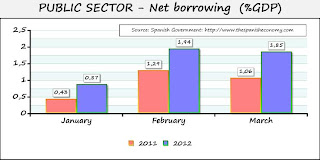Bull runs vs jobs:
The tale of the scorpion and the frog revisited
During the last weekend, all Spanish media widely covered the peculiar referendum that took place in the village of Guijo de Galisteo and its two depending hamlets1
In this call for voting, inhabitants had to decide weather they preferred to spend the budget originally assigned to local celebrations (bull runs) “to the creation of jobs”.
The budget whose earmark was into question: 15,000 euro.
At this point, it is not very difficult to imagine that this initiative was promoted by the local mayor Javier Antón, whose hand apparently shook when facing such paramount responsibility (annual budget of the village and its two hamlets amounts 1.1 million euro).
According to mayor’s statement he decided to use this formula due to “the difficult economic situation in the municipality, and above all, due to the rise in the unemployment rate that had picked up to more than 25% in the last months.”
Needless to say too, the current local government has remained unchanged since 2008 and at current local debt, only with municipality providers, amounts 206,000 euro, approximately 230 euro per capita.
Bearing in mind the above financials and deducting the costs of the voting (we have used an amount of 500 euro for the sake of simplicity), we could assume that the registered voters were deciding between:
- Whether to devote a net sum of 14,500 euro (15,000 minus 500) to the implementation of a “fiscal stimulus package” to the creation of “local jobs” (to the “glory” of the local mayor, Mr Francisco Javier Antón) or
- to “misuse” these funds in the organization of “local bull runs” during local celebrations.
Yet the outcomes of the voting have been less “rosy” than pictured by Mr Anton’s. The overall results have shown that, out of a total of 423 votes emitted, 242 were in favor of the bull runs while 181 backed a proposal to cut the festivities budget and use 15,000 (14,500) euros “to boost local employment”.
As the young Manuel Garrido expressed "(Bull runs) It's what we like here and why I voted for that option, because we know that the local job here is always for the same people".
Despite these results, mayor has decided to read them separately by hamlet, which will allow the mayor to devote two thirds of the total package euro to bull runs and the remaining third to the creation of local jobs.
After all, politicians, like scorpions, can't help themselves. The only difference is that more and more frogs are aware of that fact.
1 .http://www.rtve.es/alacarta/videos/telediario/destinar-15000-euros-festejos-taurinos-contratar-trabajadores-eventuales/1424224/http://www.huffingtonpost.com/2012/06/04/guijo-de-galisteo-bullfight-job-creation_n_1566078.html?ref=business


